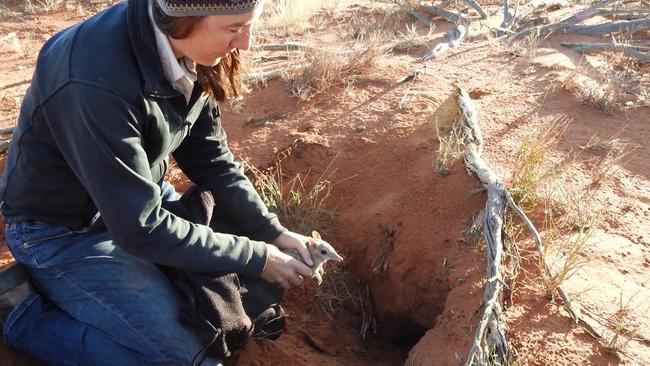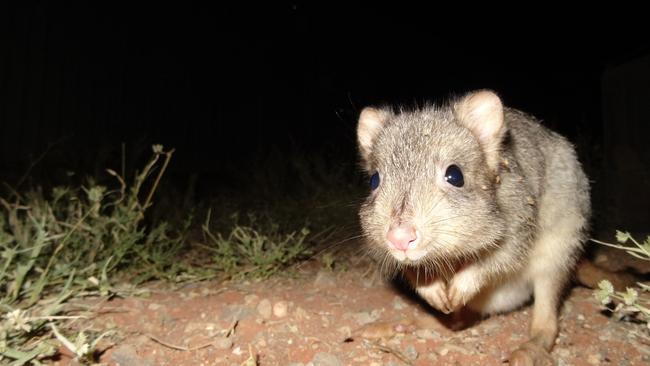Arid Recovery battles to save animals on the brink at Roxby Downs Outback reserve following worst drought in recent memory
Conservationists are battling to save animals at an Outback reserve from the effects of the worst drought in recent memory, and have received a funding boost to redouble their efforts.

- Glimpse into life helping threatened animals at Arid Recovery
- The Advertiser +Rewards – giveaways, offers and competitions
The worst drought in recent memory is pushing threatened animals to the brink, and a non-profit group in the state’s Far North is battling to keep populations alive.
Arid Recovery runs a 123sq/km reserve near Roxby Downs, where some species have suffered huge casualties due to the drought.
Staff are most worried about the greater stick-nest rats, after the population dropped from 200 animals in early 2018, to fewer than five.
General manager Katherine Tuft said of the 2000 burrowing bettongs at the reserve a few years ago, less than 100 remained, although rain earlier this year had helped encourage them to breed again.

The height of the drought was “very stressful”, and “like watching a slow train wreck”, at Arid Recovery, which has been working to help declining species since 1997.
“We were really afraid that everything would have been for nothing but also feeling responsible that we were the only thing standing between these animals and extinction for these populations,” Dr Tuft said.
“We did also see some pretty sharp declines in bilbies and bandicoots but they’ve responded more readily to the rain. The bilbies have got busy breeding and the bandicoots are to a lesser degree now.”
The organisation has introduced supplementary feed and water to help keep the animals alive.
“These have been partially successful, but need to continue until the drought breaks properly and native vegetation regenerates,” Dr Tuft said.
MORE NEWS
$2.6m boost for Kangaroo Island dunnarts and glossy black cockatoos after bushfires
Kangaroo Island bushfires: Conservationists band together to ensure threatened species survive
A $20,000 grant from WIRES (Wildlife Information, Rescue and Education Service) and Landcare Australia will help pay for feed and the installation of two “artificial soaks”, supplementing water supply in key habitat areas by piping water from underground.
The organisation will also establish a “drought paddock” for vulnerable herbivores to use during future dry times, and is studying ways to help the stick-nest rats survive drought.
Arid Recovery is spending $5000 a quarter on extra food and water, $15,000 on drought preparation projects and $5000 on the stick-nest rats research. Visit aridrecovery.org.au/donate
michelle.etheridge@news.com.au
Originally published as Arid Recovery battles to save animals on the brink at Roxby Downs Outback reserve following worst drought in recent memory
